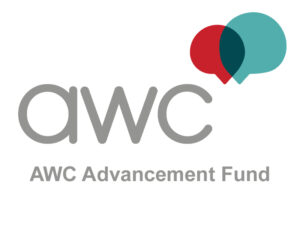Do you know the number one reason people quit? Is it the job? The boss? The key reason why 79% of employees quit is because they feel undervalued and unappreciated by their supervisor; this is perplexing because most supervisors believe they express appreciation to their staff.
Attempting change may be difficult, but it’s not impossible. Before you jump ship, there are things you can do to facilitate change.
Why the disconnect?
There are two main reasons. First, is the lack of consistency and purposeful recognition. Management thinks the recognition programs they have in place are sufficient. They view appreciation and recognition as a checklist or program, rather than an ongoing endeavor or leadership style.
The Cookie Cutter Approach
Another reason for the disconnect is the lack of meaningful appreciation. A supervisor that uses the same method to thank all employees overlooks the differences in appreciation languages.
What many leaders do not understand is that meaningful appreciation is an individualized effort. As Dr. Paul White and Gary Chapman point out in their book, The 5 Languages of Appreciation in the Workplace employees respond differently to various types of appreciation.
The Top Three
The three primary ways employees want to be appreciated are through words of affirmation, spending time together and helping them through acts of service. One of these languages is probably at the top of your list.
Wait! There’s more!
The other two, gifts and appropriate physical touch, are found in most organizations—meaning supervisors find it easy to give high fives, handshakes, donuts, bagels, pizza parties and the like.
What says, “I appreciate you.” And what does not?
You, your supervisor and your colleagues, can help each other improve the workplace by knowing what type of appreciation is most meaningful to each of you.
It is equally important to understand meaningless appreciation that could be detrimental. For example, giving chocolate to Kelsey, who is trying to lose weight, is NOT showing appreciation. Or, spending 30 minutes visiting with Jesse who is trying to complete a project is NOT meaningful appreciation. In both instances, the act is insensitive and thoughtless.
Words of Affirmation
Would you like to receive a thank note, an email or a verbal thank you when you achieve success? Do you feel good when someone encourages and affirms your idea?
Do you enjoy receiving accolades and public recognition? Or, are you paralyzed at the thought of bringing attention to yourself publicly? If so, words of affirmation may be at the top of your meaningful appreciation list.
However, when you talk to your supervisor, be sure to include your preference–to receive them publicly or privately.
Acts of Service
Do you appreciate sincere inquiries like, “How can I help you?” Do you wish your boss or colleagues would help you with specific projects? Then, acts of service may be your primary appreciation language.
Quality Time
Would you like to go to lunch, sit down with the boss or your colleagues and NOT talk about work? Or do you wish to discuss projects outside the office, in a different environment?
Would you like to participate in a fun activity with your teammates outside the office—bowling, laser tag, or softball/baseball? If you want to spend more quality time with your boss and colleagues, then this may be your preferred appreciation language.
What to do?
Communicating how we want to be appreciated, starts with knowing how we want to be appreciated. You can take an assessment and explore the languages more deeply by engaging an Appreciation At Work facilitator and by reading The 5 Languages of Appreciation.
Learning what type of appreciation is meaningful to each person makes your job more enjoyable, helps supervisors succeed, and saves the company time and money. Statistics show when companies communicate appreciation to their employees in a purposeful, meaningful way, return on equity and return on assets increase while operating costs decrease.
Join the committee that plans recognition or company events. If it doesn’t exist, form one. Use this study to introduce meaningful appreciation to the recognition committee.
Once you’ve identified your primary appreciation language, have a conversation with your supervisor. Be sure to let them know you appreciate their efforts. Your goal is to make their job easier by letting them know what is most meaningful to you. In turn, ask them how they like to be appreciated. Share what you’ve learned. Who knows! You may start a trend that improves the workplace for everyone!
 About the Author
About the Author
A member of the Springfield IL professional chapter, LaDonna Greiner is an author, photographer, speaker and life-long student of gratitude. Her book series, 21 Reasons to Say Thank You, offers real-life examples and suggestions to help you discover the power of gratitude and act on it. She is a Certified Facilitator for Appreciation at Work and a frequent speaker who coaches audiences and individuals on how to live a more fulfilling life through gratitude and appreciation. You can reach her at [email protected].


3 thoughts on “Feeling Undervalued or Unappreciated? Try This.”
Like!! Great article post.Really thank you! Really Cool.
It’s a pity you don’t have a donate button! I’d without adoubt donate to this brilliant blog! I suppose for now i’ll settle for bookmarking and adding your RSS feedto my Google account. I look forward to brand new updates and will share this site with my Facebookgroup. Talk soon!
You might find that your boss has a different take on the problem than you. For example, if you feel unappreciated because you have been repeatedly overlooked for a promotion, he might reveal that it’s because you lack certain work attributes or skills. An appropriate response would be to ask what you can do to enhance your skills and improve your performance.
By the way! The best essay writing service – https://www.easyessay.pro/